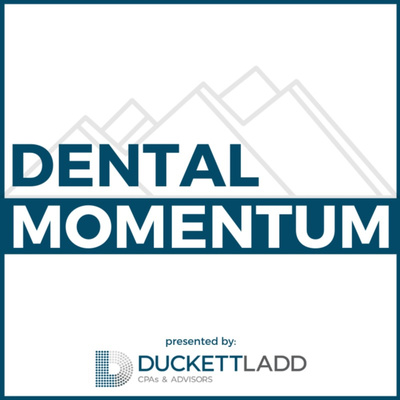Along with maintaining revenue growth, the financial health of your dental practice involves minimizing expenses and devoting sufficient resources toward accounting and financial planning.
Below, we’ll review some best practices for increasing production, managing expenses, and maximizing profits.
Understanding Your Dental Practice’s Financial Health
There are all sorts of figures and ratios for assessing a business’s financial well-being, but most of what you need to know is wrapped up within these three metrics:
- Revenue: the total money generated by your dental practice
- Expenses: the costs involved in running your dental practice
- Profit: total revenue minus total expenses, i.e. the money left over after expenses are paid or “the bottom line”
As with health care accounting, dental accounting shares many of the same principles. Dental and medical practices both have to navigate complex financial landscapes involving large overheads, regulatory compliance, and licensing and insurance coverage requirements that all result in expenses that stem from many different sources.
Without a firm grasp on your revenue, expenses, and profit, the expenses can quickly start to erode your practice’s financial health. This often happens gradually, and then suddenly, but it can be prevented with the right assistance.
Working with a dental accountant, every practice owner should review these key metrics on a regular basis. Your accountant can help you set achievable goals for improving your revenue, minimizing expenses where possible, and maximizing profit. They can also quickly assist you in detecting any troubling signs regarding performance in these areas.
Best Practices for Expense Management in Dentistry
As a small business owner, it’s important to take an organized, data-driven approach to managing expenses. This includes:
Budgeting
Surveys indicate that nearly half of small business owners don’t use budgets. The smaller the business, the less likely it is to have a formal budgeting process. However, budgeting is important for businesses of all sizes, especially ones like dental practices that carry substantial overhead costs.
Budgeting involves analyzing past expenses, identifying opportunities for improved efficiency, and setting financial goals that are ambitious but attainable. Dentists who embrace budgeting gain a better understanding of their practice’s cash flow and are better able to plan for large expenses.
Tracking Expenses
Expense tracking is the flip side of budgeting. Tracking expenses consists of recording all of your spending transactions, such as bills and vendor payments. You can track expenses manually on spreadsheets, or the process can be partially automated with accounting software.
Negotiating with Suppliers and Vendors
In many cases, you can negotiate for better prices on dental supplies and equipment. This is especially true for materials that you purchase frequently or in bulk quantities.
Best practices for supplies negotiations include:
- Research prices before reaching out to vendors
- Request quotes from multiple vendors
- Counter-offer the first quoted price
Negotiation isn’t everyone’s favorite activity, but it’s often a rather simple and speedy process that can result in significant savings. If you have a longstanding relationship with vendors and suppliers in the dental industry, negotiating more friendly rates for your practice may prove easier than you might have thought, as many of these entities place high value on repeat customers.
Outsourcing Non-Core Operations
To simplify and reduce certain expenses, outsourcing is a cost-effective strategy. Outsourcing is worth considering for any non-core operation that may be handled more efficiently by an outside service provider. Outsourcing is an option for any aspect of your business that isn’t part of patient care, such as accounting, billing, marketing, and human resources.
Strategies for Maximizing Profits in Your Dental Practice
Maximizing profits involves increasing revenues as well as minimizing costs.
A growth-focused business plan should consider these strategies:
- Investing in new dental technology: well-timed equipment upgrades bring benefits like improved quality of care, expanded treatment options, energy efficiency, and tax deductions
- Marketing and branding: embrace a modern approach to marketing with methods like short-form videos and search engine optimization; when used effectively, these methods cost less than traditional marketing but reach a wider audience
- Patient retention strategies: continuously evaluate the patient experience at your practice and explore strategies like loyalty programs and online scheduling to improve patient retention rates
- Regularly reviewing and adjusting fees: routinely review your rates and make necessary adjustments based on inflation and cost of living changes; adjust rates proactively to avoid extended periods of undercharging for your services
In concert with a disciplined approach to expense management, regularly revisiting these revenue-boosting strategies will help your practice continuously grow its profits.
Streamlining Your Accounting Process
It’s not uncommon for a dentist to feel disconnected from their practice’s finances. Your business grows, you get busier and busier, and continuing to keep tabs on all your transactions starts to feel impossible.
If your current accounting practices aren’t cutting it, it’s important to rectify the situation before it leads to problems like missed payments to creditors, tax filing errors, or uninformed financial planning.
Improving your accounting system may involve investing in financial software that automates and simplifies your bookkeeping.
Additionally, it’s important to work with an accountant who understands the dental industry and offers customized financial services. A dental CPA can assist with all aspects of your practice’s financials, from bookkeeping to tax prep.
Work with Dental Accountants to Improve Your Practice’s Financials
To improve expense management and maximize profits at your dental practice, work with financial experts who specialize in healthcare accounting.
At Duckett Ladd, we’re a group of CPAs and advisors working exclusively in the dental industry. To learn more about our accounting, bookkeeping, and growth planning services, contact Duckett Ladd today.








